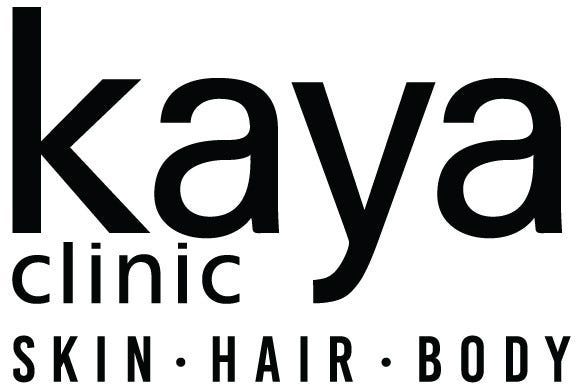Natural DHT Blocker Food for Healthy Hair Growth

What is DHT?
Dihydrotestosterone, commonly known as DHT, is a hormone derived from testosterone. While DHT plays a crucial role in the development of male characteristics, its excess can lead to significant hair loss in both men and women. Understanding the impact of DHT on hair follicles is essential for anyone looking to maintain or improve their hair health. DHT binds to receptors in hair follicles, causing them to shrink—a process known as miniaturization. This leads to thinner, weaker hair, and eventually, hair loss.
Reducing DHT levels naturally is a vital step in preventing and addressing hair loss. One effective way to achieve this is by incorporating specific DHT blocker food into your diet. Foods rich in nutrients like zinc, lycopene, and beta-carotene can help inhibit the production of DHT, promoting healthier and stronger hair. This blog will explore various natural DHT blockers, focusing on specific foods that can help reduce DHT levels and support hair growth. From green tea and pumpkin seeds to tomatoes and spinach, we'll delve into how these foods work and how you can incorporate them into your daily diet to naturally combat DHT and maintain healthy hair.
How DHT Affects Hair Growth
Dihydrotestosterone (DHT) plays a significant role in hair growth, particularly in the development of hair loss. DHT is a derivative of testosterone and, while it is essential for developing male characteristics, it can have adverse effects on hair follicles when present in excess. DHT binds to androgen receptors in hair follicles, leading to a process called miniaturization. During miniaturization, hair follicles shrink, producing thinner and weaker hair strands over time. This progressive thinning eventually results in hair loss.
Common signs of DHT-related hair loss include a receding hairline and thinning at the crown of the head. These symptoms are typical of androgenetic alopecia, also known as male or female pattern baldness. This condition can affect both men and women, leading to a gradual and noticeable loss of hair density.
Reducing DHT levels is crucial in preventing these issues and promoting healthier hair growth. By lowering DHT levels, hair follicles can avoid miniaturization, allowing for the growth of thicker and stronger hair. This can be achieved through various methods, including dietary changes, natural supplements, and lifestyle adjustments. Understanding the impact of DHT on hair growth is the first step toward effective hair loss prevention and maintaining a healthy head of hair.
Natural DHT Blocker Food
Green Tea
Green tea is rich in epigallocatechin gallate (EGCG), a powerful compound known to reduce DHT levels, making it an effective DHT blocker food. EGCG helps inhibit the enzyme 5-alpha-reductase, which converts testosterone into DHT, thus reducing the amount of DHT in the body. Incorporating green tea into your diet can be as simple as enjoying a daily cup or using it as a base for smoothies. Besides being a natural DHT blocker, green tea offers numerous other health benefits, including boosting metabolism, improving brain function, and providing potent antioxidants that combat oxidative stress. Regular consumption of green tea can support overall hair health and vitality.
Pumpkin Seeds
Pumpkin seeds are a powerful DHT blocker food due to their high zinc content, which inhibits DHT production. Zinc plays a critical role in hair tissue growth and repair and helps maintain the functioning of oil glands around the follicles. Consuming a handful of pumpkin seeds daily can contribute to healthier hair. These seeds can be easily added to various dishes, including salads, oatmeal, or yogurt, making them a versatile addition to your diet. Moreover, pumpkin seeds are also rich in magnesium, iron, and healthy fats, which further support overall health and well-being.
Tomatoes
Tomatoes contain lycopene, an antioxidant that helps reduce DHT levels, making them an effective DHT blocker food. Lycopene for hair health is significant as it can help block DHT by inhibiting the action of 5-alpha-reductase, the enzyme responsible for converting testosterone into DHT. Including tomatoes in your diet through salads, sauces, or fresh slices can support your efforts to reduce DHT. Additionally, tomatoes are a great source of vitamins A and C, which are essential for collagen production and maintaining healthy skin and hair. Regular consumption of tomatoes can enhance your overall health and contribute to thicker, stronger hair.
Carrots
Carrots are high in beta-carotene, which supports healthy hair growth, making them an effective DHT blocker food. Beta-carotene converts into vitamin A in the body, essential for the production of sebum, a natural oil that keeps the scalp moisturized and healthy. Regular consumption of carrots, whether raw, cooked, or in juice form, can help reduce DHT and promote strong hair. Carrots are also rich in antioxidants, which protect hair follicles from damage caused by free radicals. Including carrots in your diet can improve hair texture and shine while supporting overall eye and skin health.
Spinach
Spinach is full of magnesium, iron, and zinc, which are crucial for hair health, making it an effective DHT blocker food. These nutrients help block DHT naturally by supporting overall hormonal balance and reducing the conversion of testosterone into DHT. Adding spinach to your meals, such as in salads, smoothies, or cooked dishes, can enhance your DHT blocker diet. Spinach is also a great source of folate and vitamins A and C, which help with hair growth by maintaining healthy follicles and promoting the production of sebum. Regularly consuming spinach can lead to stronger, more resilient hair.
Almonds
Almonds are packed with biotin and zinc, essential for hair growth, making them an effective DHT blocker food. Biotin, also known as vitamin B7, is vital for keratin production, a protein that makes up hair, skin, and nails. Snacking on almonds or incorporating them into meals can help block DHT naturally. Zinc in almonds helps regulate the production of androgens, hormones that can affect hair growth. Additionally, almonds are rich in healthy fats, vitamin E, and antioxidants, which nourish the scalp and improve overall hair health. Including almonds in your diet can result in thicker, shinier hair and a healthier scalp.
Additional Beneficial Foods for Blocking DHT
Bananas
Bananas contain potassium and other essential nutrients that can help reduce DHT production. Potassium helps balance fluids in the body and supports healthy blood circulation, which is crucial for delivering nutrients to hair follicles. Including bananas in your diet as a snack or in smoothies can aid in blocking DHT. Additionally, bananas are rich in vitamins B6 and C, which promote healthy hair growth and strength. Their natural sugars provide a quick energy boost, making them an excellent choice for a pre-workout snack or a midday energy pick-me-up.
Watermelon
Watermelon is rich in lycopene, a powerful antioxidant that may help block DHT, making it an effective DHT blocker food. Lycopene helps protect cells from damage and reduces inflammation, which can contribute to healthier hair follicles. Enjoying watermelon as a refreshing snack or in fruit salads can contribute to reducing DHT levels. Watermelon is also hydrating, which is essential for maintaining a healthy scalp and preventing dryness. Its high water content and natural sweetness make it a perfect summer treat that supports overall hair health.
Mangoes
Mangoes provide nutrients like beta-carotene, which are beneficial for hair health. Beta-carotene converts into vitamin A in the body, promoting the production of sebum, a natural oil that keeps the scalp moisturized and healthy. Eating mangoes regularly can support your efforts to block DHT naturally. Mangoes are also rich in vitamins C and E, which help protect hair from oxidative stress and improve blood circulation to the scalp. Their delicious taste and versatility make them an easy addition to smoothies, salads, and desserts.
Soybeans
Soybeans contain isoflavones, plant compounds that can help reduce DHT levels by inhibiting the enzyme that converts testosterone into DHT. Including soy products like tofu, soy milk, and edamame in your diet can serve as natural DHT blockers food. Soybeans are also a great source of protein, which is essential for hair growth and repair. Their versatility in various dishes, from stir-fries to soups, makes them a convenient and nutritious option for maintaining healthy hair.
Peanuts
Peanuts are high in biotin and other vitamins that promote hair growth. Biotin is vital for the production of keratin, a protein that makes up hair. Snacking on peanuts or using peanut butter can help reduce DHT production. Peanuts also contain healthy fats and antioxidants, which support scalp health and improve blood circulation. Including peanuts in your diet can enhance your DHT blocker diet and contribute to stronger, thicker hair.
Turmeric
Turmeric contains curcumin, a compound that may help inhibit DHT production by reducing inflammation and blocking the enzyme responsible for converting testosterone into DHT, making it an effective DHT blocker food. Adding turmeric to your dishes, such as in curries or smoothies, can support your DHT blocker diet. Turmeric is also known for its antioxidant properties, which protect hair follicles from damage caused by free radicals. Incorporating turmeric into your daily routine can promote overall hair and scalp health.
Cucumbers
Cucumbers are hydrating and contain essential nutrients that support hair health. Their high water content helps keep the scalp moisturized, while their vitamins and minerals nourish hair follicles. Including cucumbers in salads or as a snack can help block DHT naturally. Cucumbers also contain silica, a trace mineral that strengthens hair and promotes growth. Their refreshing taste and crunch make them a perfect addition to any meal, enhancing both flavor and nutrition.
Berries
Berries are rich in antioxidants and vitamins that protect hair follicles from damage caused by free radicals. Consuming a variety of berries, such as strawberries, blueberries, and raspberries, can help reduce DHT levels and promote hair health. Berries are also high in vitamin C, which aids in collagen production and strengthens hair. Their natural sweetness and versatility make them a delicious and nutritious addition to smoothies, cereals, and desserts, supporting overall hair health.
Grapes
Grapes contain resveratrol, a powerful antioxidant that can help reduce DHT levels. Resveratrol has anti-inflammatory properties and supports healthy blood flow to the scalp, promoting hair growth. Snacking on grapes or adding them to salads can support your efforts to block DHT. Grapes are also a good source of vitamins A, C, and K, which nourish the scalp and hair follicles. Their sweet and juicy flavor makes them a popular choice for healthy snacking and meal enhancement.
Avocados
Avocados are packed with healthy fats, vitamins, and minerals that support hair health. The monounsaturated fats in avocados nourish the scalp and help maintain moisture levels. Including avocados in your diet, such as in salads, sandwiches, or smoothies, can help block DHT naturally. Avocados are also rich in vitamins E and B, which strengthen hair and promote growth. Their creamy texture and mild flavor make them a versatile ingredient in various dishes, enhancing both taste and nutritional value.
Sweet Potatoes
Sweet potatoes are high in beta-carotene, which converts into vitamin A in the body, essential for hair growth and sebum production. Adding sweet potatoes to your meals can help reduce DHT levels and promote healthy hair. They are also rich in vitamins C and E, which protect hair from oxidative stress and improve scalp health. Sweet potatoes can be enjoyed in various forms, such as baked, roasted, or mashed, adding both flavor and nutrition to your diet.
Kale
Kale is full of vitamins and minerals that support healthy hair. It is rich in vitamin C, which aids in collagen production, and vitamin A, which helps in sebum production. Including kale in salads, smoothies, or as a cooked green can help block DHT naturally. Kale is also a good source of omega-3 fatty acids, which nourish the scalp and reduce inflammation. Its robust flavor and nutritional profile make it a valuable addition to any healthy diet, promoting overall hair health.
Pine Nuts
Pine nuts are rich in zinc, an essential mineral for blocking DHT and supporting hair growth. Zinc helps regulate the production of androgens, hormones that can affect hair growth. Adding pine nuts to salads or as a snack can support your DHT blocker diet. Pine nuts are also high in vitamin E and healthy fats, which nourish the scalp and strengthen hair. Their mild, buttery flavor and crunchy texture make them a delicious and nutritious addition to various dishes.
Oysters
Oysters are high in zinc, which is essential for blocking DHT and promoting hair growth, making them an effective DHT blocker food. Zinc deficiency is often linked to hair loss, making oysters a valuable food for maintaining healthy hair. Enjoying oysters as a part of your diet can help reduce DHT levels. Oysters are also a good source of protein, iron, and omega-3 fatty acids, which support overall hair and scalp health. Their unique flavor and texture make them a gourmet addition to any meal, enhancing both taste and nutrition.
Creating a Balanced DHT-Blocking Diet
Combining Foods for Optimal Results
Creating a balanced diet that includes these DHT blocker food can optimize your efforts to reduce DHT levels. Combining foods like green tea, pumpkin seeds, tomatoes, carrots, and spinach in your daily meals can effectively block DHT. Here are some practical ideas:
Breakfast: Start your day with a smoothie made from green tea, spinach, and berries.
Lunch: Enjoy a salad with tomatoes, cucumbers, and pumpkin seeds.
Snacks: Snack on almonds and bananas throughout the day.
Dinner: Include sweet potatoes and kale in your dinner.
Sample meal plans and recipes can guide you in incorporating these natural DHT blockers into your routine, ensuring a diverse and nutrient-rich diet.
Foods to Avoid
To effectively reduce DHT, it is essential to avoid foods that increase DHT levels. Common foods to avoid include high-sugar items and processed foods, which can contribute to hormone imbalances and elevate DHT production. Focus on reducing the intake of the following:
Refined carbohydrates: Such as white bread, pastries, and sugary cereals.
Sugary snacks: Including candies, cakes, and cookies.
Unhealthy fats: Such as those found in fried foods and processed snacks.
Instead, focus on whole foods, lean proteins, and healthy fats to promote overall health and hair growth. By carefully selecting and combining foods, you can create a diet that supports healthy hair and reduces DHT levels naturally.
Natural Oils and Supplements
Oils that Help Block DHT
Using oils such as coconut oil and saw palmetto oil can be effective in blocking DHT. These oils contain properties that inhibit the enzyme 5-alpha-reductase, which converts testosterone into DHT. Applying these oils to your scalp can provide targeted treatment for reducing DHT levels. Coconut oil, known for its moisturizing and anti-inflammatory properties, can nourish the scalp and strengthen hair follicles. Saw palmetto oil, often used in DHT blocking hair oil formulations, has been shown to reduce DHT accumulation on the scalp. For best results, massage these oils into your scalp and leave them on for at least 30 minutes before washing. Using these oils regularly can enhance the effectiveness of your hair care routine.
Supplements
Biotin and other supplements can play a significant role in blocking DHT and promoting hair health. Biotin, also known as vitamin B7, supports keratin production, a vital protein for hair growth. Taking biotin supplements can enhance your efforts to reduce DHT naturally. Other supplements that may help include zinc, saw palmetto extract, and pumpkin seed oil. These supplements work by inhibiting the conversion of testosterone to DHT and supporting overall scalp health. Incorporating the best DHT blocker supplements into your diet can provide essential nutrients that promote stronger, healthier hair
Lifestyle Changes to Reduce DHT
Exercise and Physical Activity
Regular physical activity can significantly reduce DHT levels. Engaging in exercises such as cardio and strength training helps balance hormone levels and reduce the production of DHT. Cardiovascular exercises like running, swimming, and cycling increase blood circulation, which promotes a healthy scalp and supports hair growth. Strength training, on the other hand, helps build muscle and reduce body fat, which can lower the amount of DHT in your system. Incorporating a mix of both types of exercise into your routine can provide a comprehensive approach to reducing DHT..
Stress Management
Managing stress is crucial in maintaining hormone balance and reducing DHT levels. High stress can lead to an increase in the production of hormones that convert to DHT. Techniques such as meditation, yoga, and deep breathing can help manage stress effectively. Meditation helps calm the mind and reduce anxiety, which can lower stress hormone levels. Yoga combines physical postures with breathing exercises and meditation, promoting overall well-being and reducing stress. Deep breathing exercises can also be incorporated into your daily routine to help lower stress levels and support a balanced hormone environment. By managing stress, you can naturally reduce DHT levels and promote healthier hair.
Healthy Living Tips
Maintaining a healthy lifestyle with balanced nutrition, regular exercise, and stress management can naturally reduce DHT levels. Eating a diet rich in DHT blocker food such as green tea, pumpkin seeds, tomatoes, and spinach provides essential nutrients that support hair health and inhibit DHT production. Regular physical activity ensures balanced hormone levels, while stress management techniques help maintain a calm and balanced mind. Combining these elements into your daily routine creates a holistic approach to reducing DHT and supporting overall hair health.
By integrating these lifestyle changes, you can effectively manage DHT levels and promote healthier hair growth. Adopting a proactive approach to your health and wellness will not only benefit your hair but also enhance your overall quality of life.
Frequently Asked Questions (FAQs)
Does biotin block DHT?
Biotin does not directly block DHT but supports hair health by improving keratin infrastructure. Biotin strengthens hair, reduces breakage, and promotes growth, making it a valuable supplement for those looking to maintain healthy hair. While biotin is beneficial, it should be combined with other DHT blockers like green tea or saw palmetto for best results.
Does coconut oil block DHT?
Coconut oil itself does not block DHT, but it can support scalp health and reduce inflammation. Its moisturizing properties help maintain a healthy scalp environment, which can indirectly support hair growth. Using coconut oil as a part of your hair care routine can complement other DHT-blocking strategies.
How does green tea reduce DHT levels?
Green tea contains epigallocatechin gallate (EGCG), which inhibits the enzyme 5-alpha-reductase responsible for converting testosterone to DHT. By drinking green tea regularly, you can reduce DHT levels and support hair growth. Green tea also offers additional health benefits, such as improved metabolism and antioxidant protection.
Are pumpkin seeds effective DHT blockers?
Yes, pumpkin seeds are effective DHT blockers due to their high zinc content. Zinc inhibits the production of DHT, reducing hair loss. Consuming a handful of pumpkin seeds daily can contribute to healthier hair. They can be easily added to various dishes, such as salads and smoothies, to enhance your diet.
Can turmeric help inhibit DHT production?
Turmeric contains curcumin, which may help inhibit DHT production by reducing inflammation and blocking the enzyme 5-alpha-reductase. Adding turmeric to your diet through dishes like curries or smoothies can support your DHT blocker diet. Curcumin also has antioxidant properties that protect hair follicles from damage.
What role does zinc play in blocking DHT?
Zinc is essential in blocking DHT by inhibiting the enzyme 5-alpha-reductase. This enzyme converts testosterone into DHT, leading to hair loss. Foods rich in zinc, such as pumpkin seeds, spinach, and oysters, can help reduce DHT levels and promote healthier hair growth.
How do soybeans reduce DHT levels?
Soybeans contain isoflavones, plant compounds that inhibit the enzyme 5-alpha-reductase, reducing the conversion of testosterone into DHT. Including soy products like tofu, soy milk, and edamame in your diet can serve as natural DHT blockers food, supporting overall hair health.
Can avocados help block DHT naturally?
Yes, avocados are packed with healthy fats, vitamins, and minerals that support hair health and may help block DHT. Including avocados in your diet, such as in salads, sandwiches, or smoothies, can naturally support your efforts to reduce DHT levels and promote healthy hair growth.
How does stress management affect DHT levels?
Managing stress is crucial in maintaining hormone balance and reducing DHT levels. High stress can increase the production of hormones that convert to DHT. Techniques like meditation, yoga, and deep breathing can help manage stress effectively, lowering DHT levels and promoting healthier hair.
Does exercising help reduce DHT?
Regular physical activity, including cardio and strength training, helps balance hormone levels and reduce DHT production. Cardiovascular exercises improve blood circulation, supporting healthy hair follicles, while strength training reduces body fat and lowers DHT levels. Combining both types of exercise can effectively manage DHT levels.
Are there any foods to avoid that increase DHT?
To reduce DHT levels, it is essential to avoid foods that can increase DHT production, such as high-sugar items and processed foods. Reducing the intake of refined carbohydrates, sugary snacks, and unhealthy fats can help maintain balanced hormone levels and support your efforts to block DHT.
How do berries help reduce DHT levels?
Berries are rich in antioxidants and vitamins that protect hair follicles from damage and reduce DHT levels. Consuming a variety of berries, such as strawberries, blueberries, and raspberries, can help promote hair health and reduce the effects of DHT on hair follicles.
Can grapes reduce DHT?
Grapes contain resveratrol, a powerful antioxidant that can help reduce DHT levels. Resveratrol has anti-inflammatory properties and supports healthy blood flow to the scalp, promoting hair growth. Snacking on grapes or adding them to salads can support your efforts to block DHT.
How does biotin support hair health?
Biotin, also known as vitamin B7, supports keratin production, a vital protein for hair growth. While biotin does not directly block DHT, it strengthens hair, reduces breakage, and promotes growth. Taking biotin supplements can enhance your efforts to maintain healthy hair and reduce DHT-related hair loss.
What are the best natural DHT blockers?
The best natural DHT blockers include green tea, pumpkin seeds, saw palmetto, turmeric, and foods rich in zinc like spinach and oysters. These natural substances inhibit the enzyme 5-alpha-reductase, reducing DHT production. Incorporating these foods and supplements into your diet can effectively reduce DHT levels and promote healthier hair.
Conclusion
Summarizing Key Points
Managing DHT is crucial for maintaining healthy hair. Incorporating natural DHT blocker food like green tea, pumpkin seeds, and spinach, along with a healthy lifestyle, can significantly impact hair growth and health. Regular exercise, stress management, and a balanced diet help reduce DHT hormone levels and prevent hair loss. Adopting these natural methods provides a sustainable approach to hair care. Emphasize the importance of a holistic approach to hair health by integrating these practices into your daily routine.
Related Blog : Hairfall solution at home





